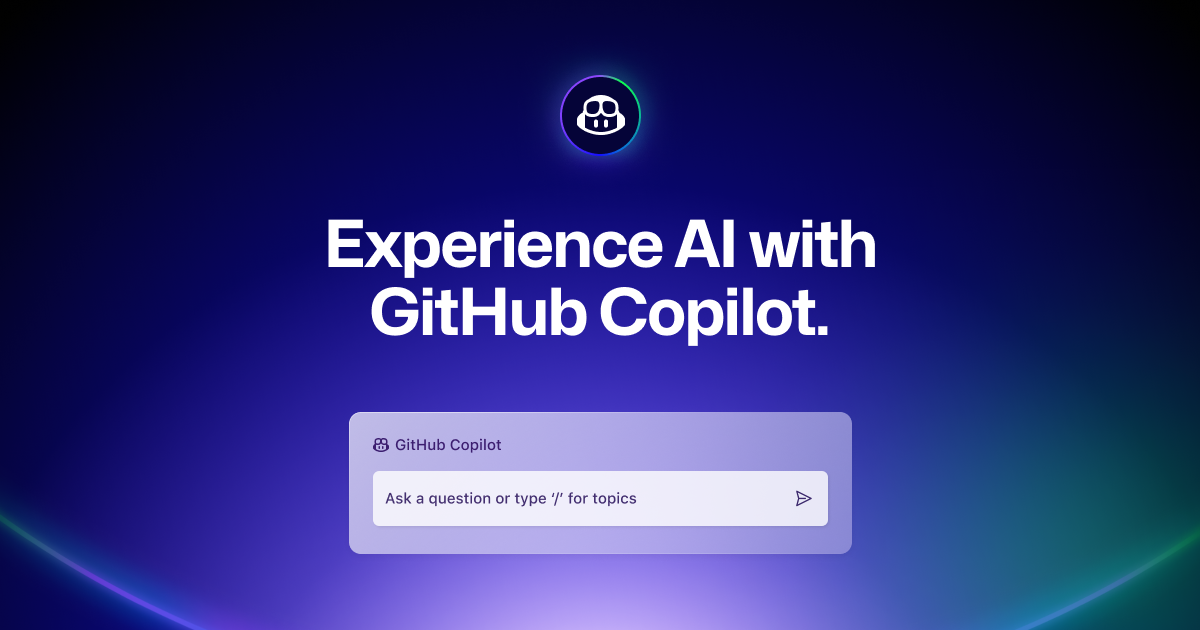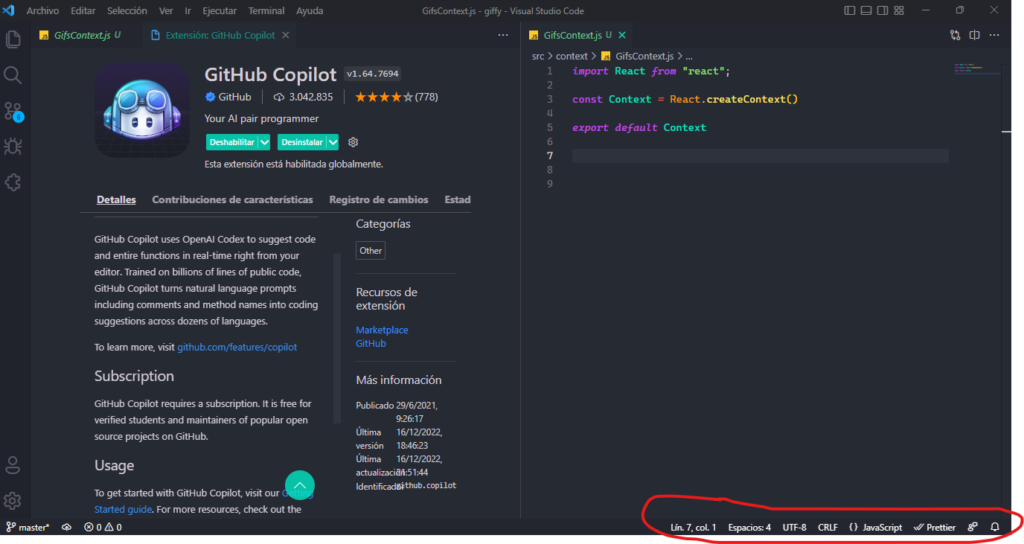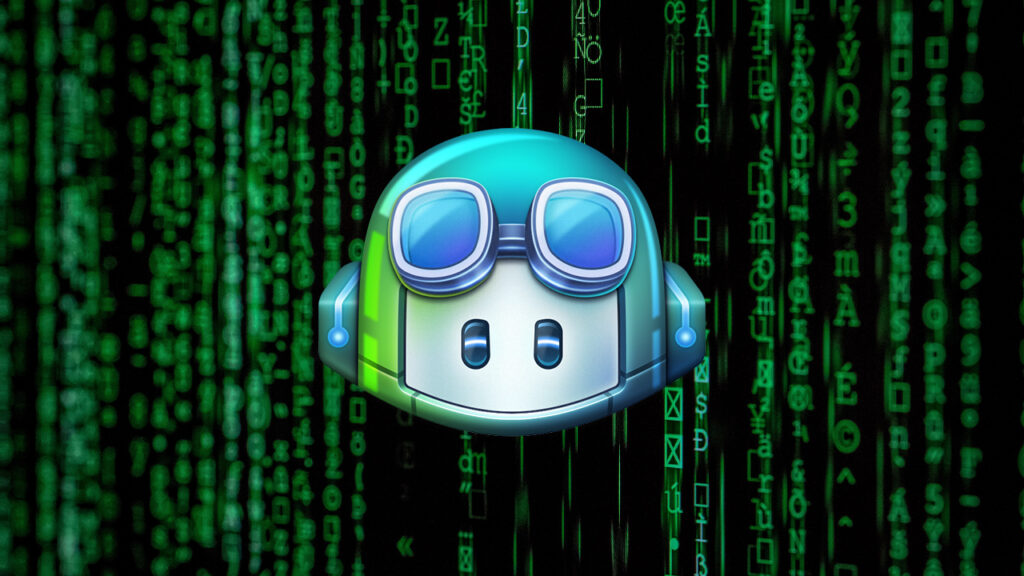
GitHub Copilot
- Introduction
- What is GitHub Copilot?
- Brief history and development
- Importance in modern software development
- How GitHub Copilot Works
- Underlying technology (OpenAI Codex, GPT models)
- Integration with IDEs (Visual Studio Code, etc.)
- Features and capabilities
- Key Benefits of GitHub Copilot
- Increased productivity
- Code completion and suggestions
- Learning tool for new developers
- Support for multiple programming languages
- Use Cases
- Common use cases (e.g., code generation, debugging assistance)
- Real-world examples
- How different industries benefit from GitHub Copilot
- Comparison with Other Tools
- Traditional code editors and IDEs
- Other AI-assisted coding tools (TabNine, Kite)
- Advantages and limitations
- Impact on the Developer Community
- Reception among developers
- Community contributions and feedback
- Impact on coding standards and practices
- Challenges and Criticisms
- Ethical concerns (e.g., plagiarism, intellectual property)
- Over-reliance on AI-generated code
- Limitations in understanding context
- Copilot’s responses to these concerns
- Future of GitHub Copilot
- Planned updates and improvements
- AI in software development: What’s next?
- Long-term impact on the developer ecosystem
- Conclusion
- Summary of GitHub Copilot’s role in the future of coding
- Final thoughts on its significance
Article: GitHub Copilot – The Future of Coding with AI
Introduction

In the rapidly evolving landscape of software development, automation and artificial intelligence (AI) are transforming the way developers approach coding. Among the most groundbreaking tools in this space is GitHub Copilot, an AI-powered code completion tool that has captured the imagination of developers worldwide. Launched as a collaboration between GitHub and OpenAI, Copilot is designed to assist developers by suggesting lines or blocks of code as they write, significantly accelerating the coding process.
GitHub Copilot represents a major leap forward in the realm of AI-driven software development. It leverages advanced machine learning models to predict and suggest code, making it easier for developers to focus on high-level design rather than getting bogged down in syntax and boilerplate code. This article explores the workings of GitHub Copilot, its benefits, challenges, and its potential future impact on the software development industry.
How GitHub Copilot Works

GitHub Copilot is powered by OpenAI’s Codex, a descendant of the GPT-3 (Generative Pretrained Transformer 3) model, which is among the most advanced natural language processing (NLP) models available today. Codex is trained on a massive corpus of public code repositories, enabling it to understand and generate code in a variety of programming languages.
Underlying Technology
At its core, Copilot uses the Codex model to predict what a developer is likely to write next, based on the context provided by the code already written. Codex is capable of understanding not just the syntax of programming languages but also the semantics, allowing it to provide contextually appropriate suggestions. When a developer writes a comment describing a function or a line of code, Copilot can often generate the corresponding code with impressive accuracy.
Integration with IDEs
GitHub Copilot is seamlessly integrated into popular Integrated Development Environments (IDEs) like Visual Studio Code. Once installed, it runs in the background, continuously analyzing the code and offering suggestions in real-time. The suggestions appear as faded text, and developers can choose to accept, reject, or modify these suggestions. This non-intrusive integration allows developers to maintain control over their code while benefiting from AI-powered assistance.
Features and Capabilities
Copilot is designed to assist with a wide range of tasks, including:
- Code Completion: It suggests entire lines or blocks of code, helping to speed up the coding process.
- Context-Aware Suggestions: Copilot understands the context of the code, offering suggestions that are relevant to the task at hand.
- Support for Multiple Languages: While Copilot excels in popular languages like Python, JavaScript, and TypeScript, it also supports less common languages, making it a versatile tool for developers working in diverse environments.
- Learning and Adaptation: Copilot learns from the developer’s coding style over time, improving the relevance of its suggestions.
Key Benefits of GitHub Copilot
GitHub Copilot offers several significant benefits, making it an invaluable tool for both novice and experienced developers.
Increased Productivity
One of the most apparent benefits of Copilot is the boost in productivity. By automating routine coding tasks, Copilot allows developers to focus on more complex aspects of software development. For instance, generating boilerplate code, which can be time-consuming and error-prone, is made much easier with Copilot. The AI can quickly generate standard patterns and structures, saving developers from repetitive tasks.
Code Completion and Suggestions

Copilot excels at providing real-time code suggestions. Whether it’s completing a line of code, suggesting the next logical step in a function, or even generating entire functions based on a comment, Copilot’s ability to predict what a developer needs is impressive. This feature is particularly useful when working with new or unfamiliar APIs, where Copilot can suggest correct usage patterns.
Learning Tool for New Developers
For new developers, Copilot serves as an excellent learning tool. It not only suggests code but also provides a way to understand how certain tasks can be accomplished within a specific programming language. By analyzing the suggestions made by Copilot, novice developers can learn best practices and common coding patterns. It acts as an on-demand mentor, providing guidance and helping new developers improve their coding skills more rapidly.
Support for Multiple Programming Languages
GitHub Copilot’s support for multiple programming languages makes it a versatile tool for developers working in various environments. Whether the task involves scripting in Python, developing web applications with JavaScript, or working with more specialized languages, Copilot provides relevant suggestions, making it easier to switch between languages without needing to recall syntax intricacies for each one.
Use Cases
GitHub Copilot is a flexible tool with applications across various stages of the software development lifecycle. Here are some common use cases:
Code Generation
One of the most common uses of GitHub Copilot is generating code from comments or incomplete snippets. Developers can write a comment describing what they want a function or piece of code to do, and Copilot can often generate the code that accomplishes that task. This is especially useful for generating repetitive or boilerplate code, such as setting up a new REST API endpoint or handling common data structures.
Debugging Assistance
While Copilot is not a debugging tool per se, it can assist in the debugging process by suggesting corrections or improvements to existing code. For instance, if a developer is working on fixing a bug and writes a comment or hint, Copilot might suggest a more efficient or correct implementation. This can speed up the debugging process and help avoid common pitfalls.
Learning New Technologies

When working with new frameworks, libraries, or languages, Copilot can be an invaluable resource. By analyzing code comments or partial code, Copilot can suggest correct usage patterns, helping developers get up to speed with new technologies faster. This is particularly beneficial in the fast-paced world of web development, where new tools and frameworks are constantly emerging.
Industry Applications
Different industries can leverage GitHub Copilot for specialized tasks. In the finance sector, for example, Copilot could assist in writing complex algorithms or data processing scripts. In healthcare, it could help in generating code for processing medical data or integrating with various health information systems. The ability to quickly generate and refine code makes Copilot a powerful tool across multiple domains.
Comparison with Other Tools
GitHub Copilot is not the first tool to offer AI-assisted coding, but it stands out for several reasons.
Traditional Code Editors and IDEs
Traditional code editors and IDEs have long included features like syntax highlighting, autocompletion, and linting. While these tools provide basic assistance, they lack the advanced, context-aware suggestions that Copilot offers. Copilot’s ability to understand the context and generate relevant code snippets goes beyond what traditional autocompletion tools can provide.
Other AI-Assisted Coding Tools
There are other AI-assisted coding tools like TabNine and Kite that offer similar functionality. However, GitHub Copilot’s integration with OpenAI’s Codex gives it a significant edge in terms of the quality and relevance of its suggestions. Unlike these other tools, Copilot’s suggestions are often more accurate and contextually appropriate, making it a preferred choice for many developers.
Advantages and Limitations
The primary advantage of GitHub Copilot over other tools is its deep integration with GitHub and Visual Studio Code, which are widely used in the development community. However, it’s important to note that Copilot is not without its limitations. While it excels in generating code, it can sometimes suggest code that is syntactically correct but semantically incorrect. Developers must still review and test the code generated by Copilot to ensure it meets their requirements.
Impact on the Developer Community
GitHub Copilot has had a profound impact on the developer community, both positive and negative.
Reception Among Developers
The reception to GitHub Copilot has been largely positive, with many developers praising its ability to speed up the coding process and reduce the mental load of writing repetitive code. However, there has also been some skepticism, particularly regarding the quality and originality of the code it generates. Some developers worry that over-reliance on Copilot could lead to a decline in coding skills and a lack of understanding of the underlying code.
Community Contributions and Feedback
GitHub has actively sought feedback from the developer community to improve Copilot. This feedback has led to ongoing refinements in how Copilot generates suggestions and how it integrates with various development environments. The community has also played a role in identifying and addressing potential ethical concerns, such as the use of copyrighted code in Copilot’s training data.
Impact on Coding Standards and Practices
GitHub Copilot has the potential to influence coding standards and practices across the industry. By suggesting certain coding patterns and practices, Copilot could contribute to the standardization of code across different projects and teams. However, there is also a risk that it could propagate suboptimal practices if not used carefully. Developers must be mindful of the code Copilot generates and ensure that it adheres to best practices.
Challenges and Criticisms
Despite its many benefits, GitHub Copilot has not been without its share of challenges and criticisms.
Ethical Concerns
One of the most significant concerns surrounding GitHub Copilot is the potential for plagiarism and intellectual property issues. Copilot is trained on a vast corpus of public code, which includes code with various licenses. This raises questions about whether the code generated by Copilot could inadvertently include copyrighted material, leading to legal challenges.
Over-Reliance on AI-Generated Code
Another concern is the risk of developers becoming too reliant on AI-generated code. While Copilot can be a valuable tool for speeding up the development process, there is a danger that developers might rely on it too heavily, leading to a decline in their problem-solving and coding skills. It’s essential for developers to continue honing their skills and using Copilot as a supplement rather than a crutch.
Limitations in Understanding Context
Although Copilot is highly advanced, it still has limitations in understanding the broader context of a project. This can lead to suggestions that, while correct in isolation, may not align with the overall design or requirements of the project. Developers must carefully review and validate the code generated by Copilot to ensure it fits within the larger context.
Copilot’s Responses to These Concerns
GitHub has acknowledged these concerns and is actively working on improving Copilot. This includes refining the algorithms to better understand context, implementing safeguards to prevent the generation of copyrighted code, and encouraging developers to provide feedback on their experiences with the tool. GitHub has also emphasized that Copilot is meant to assist developers, not replace them, and should be used in conjunction with good coding practices.
Future of GitHub Copilot
The future of GitHub Copilot looks promising, with several planned updates and potential improvements on the horizon.
Planned Updates and Improvements
GitHub is continually working on improving Copilot’s accuracy, context awareness, and usability. Future updates may include better support for more programming languages, enhanced debugging assistance, and more sophisticated understanding of project-specific contexts. These improvements could make Copilot an even more powerful tool for developers.
AI in Software Development: What’s Next?
The success of GitHub Copilot is likely to inspire further advancements in AI-driven software development tools. We can expect to see more AI-assisted coding tools entering the market, each offering unique features and capabilities. The integration of AI in the development process could eventually extend beyond code generation to areas like automated testing, deployment, and even project management.
Long-Term Impact on the Developer Ecosystem
In the long term, GitHub Copilot could significantly impact the developer ecosystem. By making coding more accessible, it could lower the barrier to entry for new developers, leading to a more diverse and inclusive industry. However, it will also be crucial for developers to adapt to the changes brought about by AI and continue to develop their skills in an increasingly automated world.
Conclusion
GitHub Copilot represents a significant advancement in the field of AI-assisted software development. By leveraging the power of machine learning, it provides developers with a tool that can greatly enhance productivity, assist with learning, and streamline the coding process. However, it is not without its challenges and ethical considerations. As developers continue to explore the potential of Copilot, it will be essential to balance the benefits of AI with the need to maintain strong coding skills and adhere to best practices.
The future of GitHub Copilot is bright, with ongoing improvements and a growing role in the software development lifecycle. As AI continues to evolve, tools like Copilot will play an increasingly important role in shaping the future of coding, making it an exciting time to be a developer.
